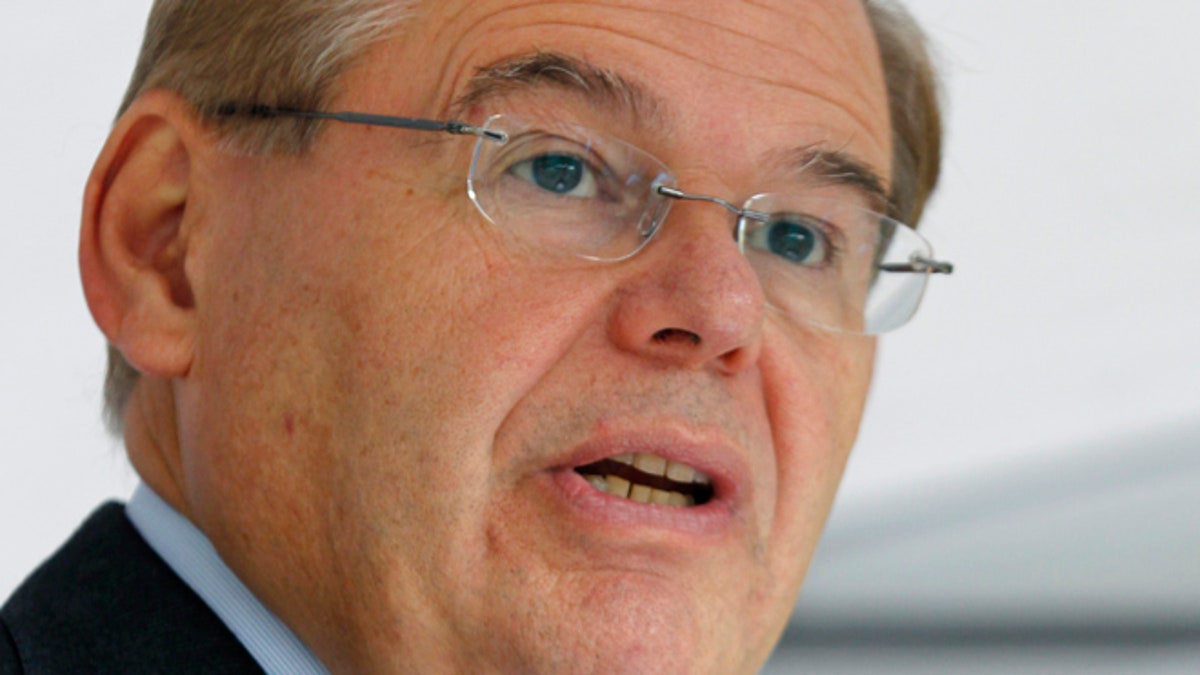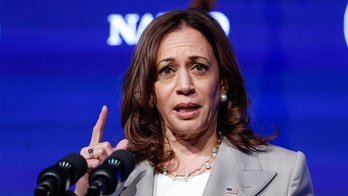
Sept. 27, 2012: Sen. Robert Menendez speaks in Sayreville, N.J. (AP)
U.S. Sen. Bob Menendez (D-N.J.) says that the biggest challenge to preventing terrorist attacks in terms of intelligence gathering are so-called "lone wolves," such as the one suspected of attacking an American gas factory in southeastern France.
Menendez, the former chairman of the Senate Foreign Relations Committee, said that the terrorist attacks in Tunisia, France and Kuwait which killed scores of people on Friday show the modern-day security challenges.
“It seems that there is some sort of coordination going on, to have all these acts taking place on the same day,” Menendez told Fox News Latino. “It’s both alarming and incredibly upsetting.”
“The biggest challenge," he noted, "is the operation of a lone wolf." Menendez said that in such cases, "it’s more difficult to gather surveillance" than when a state or a terror organization are involved.
Interpol said its Lyon, France, headquarters is in close contact with authorities in the four nations' capitals. Interpol Secretary-General Juergen Stock said the four attacks Friday "show the truly global dimension to current terrorist threats."
French President François Hollande says he is raising the security alert to the highest level for three days in the region where the attack took place.
Hollande spoke after a high-level security meeting Friday afternoon, hours after the attack on the factory left two people wounded. In addition, a local businessman was found decapitated at the factory site, along with banners carrying Arabic inscriptions.
French police say they have the main suspect in custody, along with the suspect's wife and others.
Hollande says the key question is to determine whether there were any accomplices.
Also on Friday, Menendez urged Secretary of State John Kerry in a letter to end nuclear talks with Iran, saying that country's leaders are making unacceptable demands that the United States should not meet.
Menendez noted that Iran's Ayatollah Ali Khamenei has said an inspection of Iran's military sites is “one of our red lines,” which they will not agree to.
Khamenei also has called on the U.S. and others to lift sanctions against Iran “immediately when we sign a nuclear agreement.” He rejected a long-term freeze on nuclear research.
“These demands are unacceptable – they presuppose that the government of Iran will act in good faith, when it has shown itself in the past to be an untrustworthy negotiating partner,” Menendez said in his letter. “If Iranian negotiators intend to adhere to the provisions demanded by Ayatollah Khamenei and Iran’s parliament, I urge you to suspend the current negotiations with Iran.”
“The Iranian regime had spent decades deceiving the international community, it stands in violation of its international commitments,” Menendez wrote, “and it continues to deny the International Atomic Energy Agency access to its facilities and answers to questions about its nuclear-related military activities.”
Kerry subsequently suggested that Khamenei's comments were made when he was speaking to a domestic audience appreciative of a hard-line stance and said that a deal was out of reach if Tehran also reneges on its commitments at the negotiating table.
“A deal that allows sanctions to be lifted before Iran’s government meets its obligations, without intrusive inspections to safeguard against a continued covert nuclear program,” Menendez said, “and that leaves Iran as a threshold nuclear state is a bad deal that threatens the national security of America and our allies and must be rejected.”
Menendez’s letter to Kerry comes as negotiators work to reach an agreement by the June 30 deadline.
Deputy Foreign Minister Abbas Araghchi, Iran's top negotiator, told the country's IRNA news agency, "on the whole, we are making headway," but progress was hard.
While Iran and the six countries agreed in April on the outlines of a deal that would limit Tehran's nuclear activities for at least 10 years in return for sanctions relief, negotiators are finding it difficult to fine-tune which sanctions would be lifted, when, as well as how open Iran must be to outside monitoring.
Complicating issues, said Araghchi, was the fact that the six nations Iran is negotiating with also differ in approach "in certain topics ... which may not be harmonized easily." He did not offer details.
The Associated Press contributed to this report.




